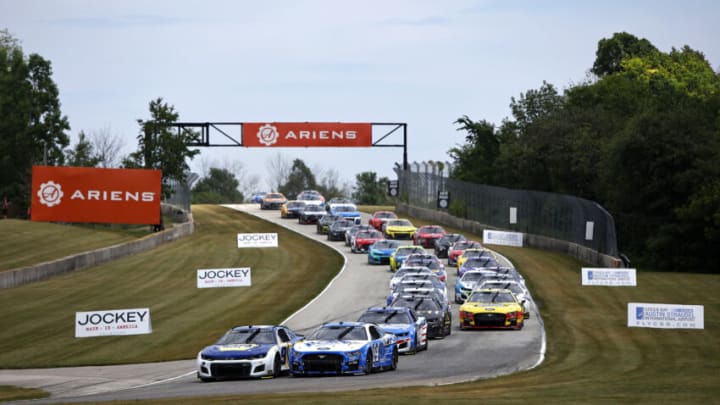NASCAR is set to confirm the long-rumored Chicago Street Course as an official Cup Series race, a move that has earned mixed reactions from fans already.
NASCAR‘s affinity for the city of Chicago is nothing new. From 2001 to 2019, the sport raced at the Chicagoland Speedway oval in Joliet, Illinois.
The track produced the infamous “slide job” call by Dale Earnhardt Jr. in 2018, and one year later, in its most recent event, Alex Bowman, Earnhardt’s replacement in the #88 Hendrick Motorsports Chevrolet, secured his first Cup Series win.
But the 2020 race at Chicagoland Speedway was canceled due to the COVID-19 pandemic, and the venue was left off the schedule going forward.
Instead, NASCAR returned to Chicago via an eNASCAR iRacing Pro Invitational Series race at a virtual street course in June 2021, and that has proven to be a sign of things to come.
Street courses are common in open-wheel racing such as Formula 1 and IndyCar, but never has one been on the Cup Series schedule.
NASCAR’s Pinty Series in Canada has run races on street courses, but in front of a much more limited audience.
Reports came out a few weeks ago that the Chicago Street Course was going to become a reality for 2023, and that news was seen as unpleasant for many fans.
The Athletic‘s Jordan Bianchi reported that the “Windy City” has endorsed a three-year deal for the street course, starting next year. The official announcement is provisionally scheduled to take place on Tuesday, July 19.
NEWS: In a letter obtained by @TheAthletic, the City of Chicago endorses a NASCAR race on a temporary street course for a 3-year stretch beginning in 2023. The deal is not finalized, but a tentative announcement is planned for July 19.https://t.co/rUr2GfxpGr
— Jordan Bianchi (@Jordan_Bianchi) July 6, 2022
In the replies of Bianchi’s post alone, the disdain for this decision was echoed. NASCAR hosting a new street course race in an area that already has a perfectly viable track left a sour taste in the mouths of many.
And with Road America rumored to be the track which the street course will replace, the complaints became and will continue to get louder.
Moving on from a track after just two years, one at which the Cup Series hadn’t previously raced since 1956, gives the look of a failed experiment, much like the Daytona International Speedway road course.
Change is important in NASCAR, but certain schedule dates and locations should remain constant. With too much change, it becomes less about who the best drivers are and more about which drivers can throw a dart on a map and race wherever it lands.
The innovation-fueled races, led by NASCAR Senior Vice President of Racing Development and Strategy Ben Kennedy, have been somewhat of a breath of fresh air, but this can also become a liability for the sport. With a fanbase that relies on tradition and consistency, this could be another case of too much, too soon.
